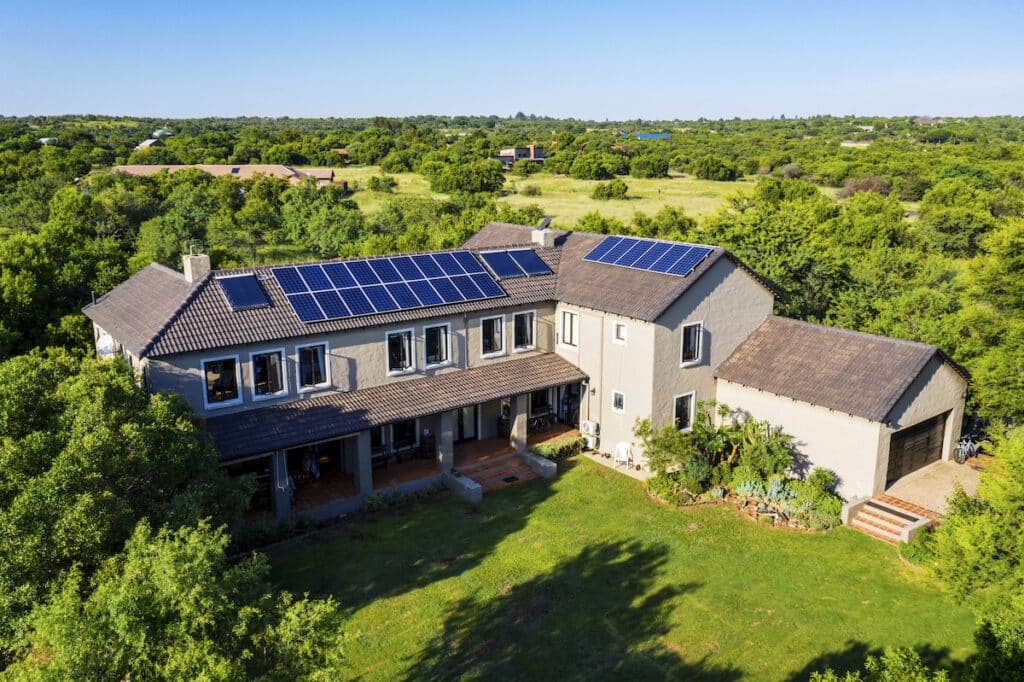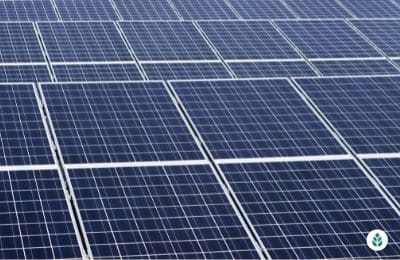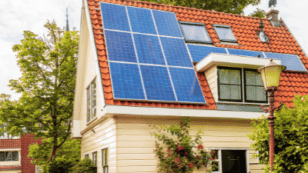 Reviews
Reviews
How Much Do Solar Panels Cost in Alabama? (2024 Savings Guide)
In this guide on the cost of solar panels in Alabama, you’ll learn:
- What the average cost of going solar is in the Yellowhammer State
- How Alabamans can save money when going solar
- Which local installation companies have the best prices
Each product and or company featured here has been independently selected by the writer. You can learn more about our review methodology here. If you make a purchase using the links included, we may earn commission.
Alabama is one of the best places in the entire country to convert to solar. Residents use well above the average amount of energy each month, which means above-average solar savings, see more sunny days per year than most Americans and enjoy some of the lowest costs for solar equipment on a per-watt basis.
In this article, we’ll be discussing the average cost of solar panels in Alabama and some of the factors that play a role in your conversion costs. We’ll also provide some tips on how to save money when going solar in Alabama and offer some insight into which local solar panel installation companies are likely to fit into your budget.
What Will Your Solar Panel System Cost in Alabama?
Most Alabamans pay around $3.72 per watt for photovoltaic (PV) equipment. Since the local energy needs are so high, the typical solar power system needs to be around 11.5 kilowatts (kW) to offset utility bills. That means a total installation cost of $42,780 before any tax incentives or $29,946 after the federal solar investment tax credit (ITC).
The size of the system you need is usually one of the most significant cost factors, so we’ll include some typical system prices based on the size of your system and monthly energy demands in Alabama in the table below.
| Solar System Size | Energy Use (per month) | House Size (sq ft) | Total Cost | Cost After the Federal ITC | Energy Savings (over 25 years, after system is paid off) |
| 9 kW | 900 kWh | 1,600 | $33,480 | $23,436 | $15,525 |
| 10 kW | 1,000 kWh | 1,800 | $37,200 | $26,040 | $17,250 |
| 11 kW | 1,100 kWh | 2,000 | $40,920 | $28,644 | $18,975 |
| 12 kW | 1,200 kWh | 2,200 | $44,640 | $31,248 | $20,700 |
| 13 kW | 1,300 kWh | 2,400 | $48,360 | $33,852 | $22,425 |
| 14 kW | 1,400 kWh | 2,600 | $52,080 | $36,456 | $24,150 |
| 15 kW | 1,500 kWh | 2,800 | $55,800 | $39,060 | $25,875 |

Eagle Solar & Light

Regional Service
Average cost
Pros
- NABCEP-certified technicians
- Offers products from leading manufacturers
- Locally owned and operated
- Award-winning company
Cons
- Relatively young company
- Limited information available on website
- Slightly limited service offerings

Creative Solar USA

Local Service
Average cost
Pros
- Representatives are experts on local policies
- Comprehensive service offerings
- Many years of experience
Cons
- No leases or PPAs
- Limited brands of solar equipment available

Blue Raven Solar

Regional Service
Average cost
Pros
- Industry-leading in-house financing
- Competitive pricing
- Excellent reputation
Cons
- Doesn't offer solar batteries (coming 2022)
How Do Alabama’s Solar Prices Compare to the National Average?
Alabama solar customers pay some of the lowest per-watt prices for solar equipment, with just four states having lower prices. The average cost per watt in Alabama is $3.72, which is well above the national average of $3.33. That means every dollar you spend will yield fewer watts and less solar production for your home.
Additionally, the energy demands are higher in Alabama than in most states, with most homes consuming 1,145 kilowatt-hours per month, compared to the national average of 881 kWh.
Since solar energy systems are usually sized to offset your energy needs, Alabamans need significantly larger systems than most Americans. The average system size in AL is 11.5 kW, which is much larger than the U.S. average of 9.5 kW.
As a result, you’ll pay more for a solar system in Alabama — around $29,946 — than you would in most other states — which average around $20,979.
What Are the Main Factors of Solar System Costs in Alabama?
While the average solar panel system cost in Alabama sits just under $30,000, it’s common to see prices fluctuate between $23,436 and $39,060. The range of the typical system total is so large because there are many different factors that play a role in panel installation prices. Some of the most influential factors include the following:
- The above-average energy demands
- The high value of solar batteries in the area
- The efficiency of your solar panels
In the following sections, we’ll explain the role each of these factors plays in your all-in solar power system price.
The Above-Average Energy Consumption in Alabama
No matter where you live, the size of your system will play a huge role in what your array costs. As mentioned above, Alabamans use more electricity than residents in most other states, with the average monthly consumption sitting around 1,145 kWh.
Higher energy consumption means your system will need to be larger to offset your electricity costs, and adding more panels to your home will naturally cost more.
Not only does the 2 additional kWh over the national average contribute to the high cost of solar in Alabama, but we recommend most residents opt for high-efficiency panels to maximize their energy production. Generally speaking, the type of solar panel we recommend in the area is a monocrystalline panel with an efficiency rating of more than 20%.
Larger systems and higher-efficiency panels cost more and drive up total installation prices. Still, we do recommend choosing an oversized system and high-efficiency panels to boost your long-term savings, as we feel it’s worth it over time.
Net Metering and the Value of Solar Batteries in Alabama
Another significant cost factor for alternative energy solar systems in Alabama is the presence of solar batteries. Batteries provide two major benefits to solar customers: they let you maintain power through blackouts, and they provide access to effective net metering.
Since net metering isn’t mandated in Alabama, we recommend that most homeowners consider solar batteries, which can add an average of around $10,000 to your installation costs.
Net metering — also called net energy metering or NEM — lets you bank excess power production and use it when your panels fail to produce sufficient energy, like on cloudy days or at night. This program helps you maximize your home solar savings, especially in areas of high energy demand, like Alabama.
Alabama doesn’t mandate net energy metering, which means a lot of customers won’t have access to the money-saving perk. Installing a battery gives you access to effective NEM, though. While batteries will very often pay for themselves in AL and are recommended, they will drive up your installation cost by an average of approximately $10,000.
The Energy Demands and the Need for High-Efficiency Panels in Alabama
Most solar customers in the U.S. will have their pick of a variety of solar panel brands, including polycrystalline panels with a lower efficiency rating and monocrystalline panels, with efficiency ratings ranging from around 18% up to nearly 23%. The higher the efficiency rating, the more expensive your panels will be in most cases.
Alabamans see an above-average number of sunny days per year, which usually means lower-efficiency panels will suffice. However, since residents also have energy needs that are higher than most states, the higher-efficiency panels are all but necessary if you want to maximize your solar savings.
We suggest investing in a high-efficiency panel brand like Maxeon to make the best use of the available sunlight and get the best chance of offsetting and even eliminating your energy costs or reducing your effective electricity rates in Alabama.
Additional Costs of Going Solar in Alabama
When estimating the price of a solar panel system, most Alabama homeowners think about the cost of panels and major add-on products, which do make up the bulk of the costs. However, there are some additional charges you might want to consider to get an accurate estimate. We’ll discuss these other charges below.
- Additional solar equipment: Solar panels and add-on products like batteries and electric vehicle (EV) chargers are the biggest costs when converting to solar in Alabama. However, you might also have separate line items like inverters, conduit, wiring and squirrel guards that can add a few hundred dollars to your total.
- Building permits: All cities in Alabama require that you or your solar panel installation company file building permits before any work is started. Building permit applications often come with filing fees in the Yellowhammer State that usually fall between $25 and $300. Those fees are often passed to you through your installer, which will typically fill out the required paperwork for the permits and building department inspections.
- Interconnection application fees: Just about all solar arrays in Alabama are grid-tied, and in order to get the benefits of a grid-tied system, your installer will need to file an interconnection application with your electric company. This application is sometimes free to file but could come with fees of between $25 and $200, depending on your utility company.
- Equipment markup and administration fees: The different solar installers in Alabama can opt to upcharge the equipment they install, which can contribute to a higher overall installation cost. Some companies will also include line items in your invoice for admin fees, which can cover things like filing for permits for your system, filing for solar incentives and rebates and designing a system to fit your home.
Watch Below: Learn How Solar Energy Storage Works and Whether It’s RIght For You
What Maintenance Costs Can Solar Owners Expect in Alabama?
Thankfully, once you install solar panels in Alabama, you shouldn’t be on the hook for any ongoing maintenance costs.
Some solar customers choose to pay for panel cleaning services one to two times per year, which average between $150 and $300. However, the above-average rainfall in Alabama should serve to wash away any pollen, dirt or debris that might compromise your solar production.
There’s a chance you’ll also run into issues with your panels that stem from improper installation or manufacturer defects. Provided you choose an installer that offers robust warranty coverage, you won’t be responsible for paying for any repairs or maintenance.
Which Solar Financing Options Will Help You Save the Most in Alabama?
Homeowners in Alabama should have access to all four of the major solar panel payment options, including cash purchases, solar loans, solar leases and power purchase agreements (PPAs). The option you choose will have an impact on your upfront and long-term system prices.
Paying in cash is the least accessible option no matter where you live, but cash purchases are even less accessible than normal in high-cost areas like Alabama. However, this option leaves you with the lowest overall cost — since you won’t be paying interest — the shortest payback period and the highest long-term savings.
Cash purchases and solar loans both let you take the federal tax credit, a perk from the federal government that holds an average value of just under $13,000 in Alabama. A solar loan is much more accessible in AL, given that they often have no down payment requirements. The interest you pay, however, will extend your payback period and decrease your savings over time.
A solar lease might suit you if you can’t make a cash purchase or a solar loan work. In a lease agreement, you pay a monthly fee to rent your panels and get to use the energy they generate to offset your high electricity costs.
Solar leases don’t have any down payment requirements and usually don’t have the same minimum credit score requirements that loans do. This makes them more widely accessible. However, they don’t let you take the federal credit, and the savings you’ll see are often significantly lower than what a loan would yield.
PPAs are generally the last option we recommend. They are about as accessible as leases since they don’t have down payment or credit requirements. However, they provide even fewer savings than leases in many cases, and they also preclude you from taking the federal credit.
If you’re not sure which payment option works best for you but you still want to get the process of getting solar quotes started, we suggest you look at SunPower or Tesla. Most local providers don’t offer leases or PPAs, but these two national installers offer all four payment options.
Additionally, we suggest you use our solar calculator to see what a solar system customized for your home is likely to cost. Once you know the total price, you can figure out which payment options are likely to suit your budget. You can use the information in the table below to determine which options you can afford and which of those will suit you best.
| Financing Method | Total 25 Year Savings (estimated) | Initial Costs (estimated, after the ITC) | Monthly Payments (estimated) | Payback Period (estimated) |
| Cash | $30,270 | $29,946 | $0 | 13 years |
| Loan | $25,000 | $0 | $100 to $275 | 17 years |
| Lease | $5,000 | $0 | $155 | N/A |
| PPA | $4,000 | $0 | $155 | N/A |
What Are Other Ways You Can Save When Going Solar in Alabama?

Since the typical price of solar panels in Alabama is so high, it’s natural that homeowners would look for ways to save money in the process of converting to renewable energy. Thankfully, there are some things you can do to help keep your costs down, including the following:
- Consider installing solar batteries
- Choose high-efficiency panels
- Take advantage of Alabama solar incentives
We’ll explain how these tips can save you money and how much they save on average in the following sections.
Consider Installing a Solar Battery
Installing a solar battery alongside your panels will usually bump up your installation costs by $10,000 or more. However, we expect that it will save most Alabamans money over time.
Solar batteries can pay for themselves and end up saving money in areas where net energy metering isn’t available. Net metering lets you overproduce energy during peak sunlight hours and bank the excess electricity for later use. With net energy metering, a good portion of the energy you consume when your panels aren’t producing energy — like at night or on cloudy days — can still be offset if you overproduced during the day.
Net energy metering (NEM) isn’t mandated in Alabama, so many customers won’t have access to the program. Those that do will likely get credited at a below-retail rate per kWh. Since local energy needs are so high, it’s often worth it to pay $10,000+ to have a battery installed to get access to effective net metering.
It’s hard to say exactly how much a solar battery is likely to save you over time, but we expect it would pay for itself and then some, given the high energy demands in Alabama.
Choose a High-Efficiency Panel Brand
We also strongly recommend you choose a panel brand with a high efficiency rating, like Maxeon. High-efficiency panels usually cost more on a per-watt basis, but in areas with above-average energy needs, like Alabama, they’re often worth the added investment.
High-efficiency panels will generate more energy in all conditions, which means you’ll be more likely to offset your high energy demands. Since Alabamans have higher electric bills than most Americans, a high-efficiency panel can also mean a better chance of offsetting your expensive utility bills.
Although they’ll very likely cost you more upfront, panels with an above-average efficiency rating can pay for themselves several times over in Alabama.
Take All of the Solar Incentives You Can
One of the fastest ways to save on your solar energy system is to take advantage of all of the solar incentives you can. Unfortunately, Alabama state incentives are few and far between, but you can still take the federal tax credit and the property tax exemption.
The federal credit is available to all Alabama residents and credits your income tax liability with 30% of your system price. Based on average system sizes in your area, the average credit value is $12,834, which is close to $4,000 higher than the national average.
The property tax exemption doesn’t technically save you money on your system, but it does prevent your property taxes from increasing just because your clean energy system bumps up your home value.
There are a bunch of cities and utility companies — like Birmingham and Alabama Power — that offer energy efficiency incentives as well. These won’t bring down your system totals, but they can help you save on other energy efficiency upgrades you make to your home. You can check out our guide to solar incentives in Alabama for more information.
What Are the Typical Costs of Alabama’s Solar Installers?
The solar panel installation company you choose to handle your solar project will play a role in your total conversion costs. Every installer charges different prices for equipment and labor, so equivalent systems from different installers can differ by thousands of dollars in some cases.
The table below includes some relative cost information for what we believe are the five best solar companies in Alabama.
| Solar Company | Superlative | EcoWatch Rating (Out of 5.0) | BBB Rating | Average Cost ($–$$$$$) |
| SunPower | Best National Provider | 5.0 | A+ | $$$$ |
| ADT Solar | Best Warranty Coverage | 4.5 | A+ | $$$ |
| Eagle Solar & Light | Outstanding Regional Installer | 4.5 | A+ | $$$ |
| Creative Solar USA | Solar Veteran | 4.0 | A | $$$ |
| Solar Technology Alabama | Outstanding Local Installer | 4.0 | NR | $$$ |
How Are Solar Costs and Regulations Trending In Alabama?
The Solar Energy Industries Association (SEIA) reports that the price of solar panels in Alabama has dropped by around 53% over the last decade. The average system today that costs $29,946 would have totaled over $60,000 ten years ago.
A big part of PV systems getting more affordable is the mass production capabilities, thanks in large part to the increase in demand nationwide across the entire solar industry. We expect the prices to continue to dip in the coming years, even in areas like Alabama, where the cost per watt is already well below average.
As far as solar incentives and regulations go, we don’t foresee any changes in the coming years. Alabama currently doesn’t have a renewable portfolio standard (RPS) goal, which is often the impetus for new solar incentives and rebates being offered. Without an RPS goal, we don’t expect any new perks to pop up.
Additionally, the state currently doesn’t mandate a net metering program, which is the single incentive that is changing most readily across the country. As such, we don’t feel that any of the currently available incentive programs are at risk of getting downgraded or discontinued in the near future.
With the price of equipment lower than it ever has been and incentives looking like they’re going to stay stagnant, now is an excellent time to go solar in Alabama, in our opinion. You can use the tool below to start getting solar quotes for your system and get the process underway to start saving.
The cost information presented in this article is derived from a comprehensive analysis, incorporating data from multiple industry sources. The average cost per watt per state was calculated based on figures from Consumer Affairs, Energy Sage, and Berkeley Lab’s Electricity Markets & Policy Department. Additionally, monthly energy consumption and the average monthly cost of electricity were sourced from the U.S. Energy Information Administration, ensuring a well-rounded and accurate representation of the information presented.
FAQs: Alabama Solar Panel Costs
In the following sections, we’ll answer questions we get regularly from homeowners in your area about the cost of solar panels and the benefits of converting.
No, there are no state assistance programs for going solar. Some companies advertise “free solar panels” or “state-funded solar arrays,” but this is often a marketing ploy to get you to sign a solar lease or power purchase agreement, neither of which we recommend.
Alabama recently implemented a solar fee, which is a small fee solar customers pay monthly per kilowatt of solar they have installed. The exact fee per kW is based on a few factors, including your electric company, but the average is around $5 per month. For the typical 11.5 kW system in Alabama, that’s around $58 per month just to have access to solar.
The average cost of a solar array in Alabama is $29,946 after the federal solar tax credit or $42,780 before any incentives are taken. This assumes you pay the typical price per watt in the state of $3.72 and need the average 11.5 kW system to offset your above-average energy bills.
No; in fact, Alabama is considered one of the least solar-friendly states. Alabama doesn’t have a renewable portfolio standard, has minimal solar incentives available and imposes a solar fee that inherently makes renewable energy equipment less valuable. Still, most homeowners who do convert still save over $30,000 with their systems, thanks to the high utility bills, meaning systems are still considered to be cost-effective.
Top Solar Installers in Alabama Cities
Comparing authorized solar partners
-
- NABCEP-certified technicians
- Offers products from leading manufacturers
- Locally owned and operated
- Award-winning company
- Relatively young company
- Limited information available on website
- Slightly limited service offerings
A+Outstanding Regional Installer
Having trouble deciding? Click below and use our process to receive multiple quotes instead:

 233k
233k  41k
41k  Subscribe
Subscribe 





